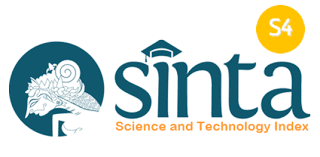The Implementation of Islamic Religious Education (PAI) in Shaping the Profile of Rahmatan lil alamin Students in a Madrasah
Abstract
Religious Education plays a crucial role in shaping the personality of students. An ideal Islamic Religious Education (PAI) should not merely focus on the transmission of religious knowledge but also encompass learning to practice the acquired religious knowledge and instilling Islamic values (value transfer) that align with the concept of "rahmatan lil alamin." Within this context, the researcher becomes interested in investigating the implementation of PAI instruction in molding the profile of "rahmatan lil alamin" students in a madrasah. This study aims to elucidate and interpret the implementation of PAI instruction in shaping the profile of "rahmatan lil alamin" students in a madrasah. The research follows a normative approach and includes literature review and descriptive-narrative analysis as research stages. The researcher employs conceptual and legal approaches, utilizing library research methods. The researcher serves as the primary instrument as a planner, executor, data collector, analyst, and reporter of research findings. The research findings illustrate the significant role of PAI instruction as a platform for shaping and reinforcing the profile of "rahmatan lil alamin" students. Profile reinforcement can be implemented through intracurricular-integrated, co-curricular, and extracurricular teaching strategies. Furthermore, the study outlines the pivotal role of teachers in project-based learning selection. In this regard, teachers act as project planners, facilitators, student mentors, resource persons, supervisors or consultants, and discussion moderators, thereby providing a comprehensive educational experience for students.
Downloads
Copyright (c) 2025 Khoirul Muthrofin, Hepi Ikmal, Winarto Eka Wahyudi

This work is licensed under a Creative Commons Attribution-ShareAlike 4.0 International License.





